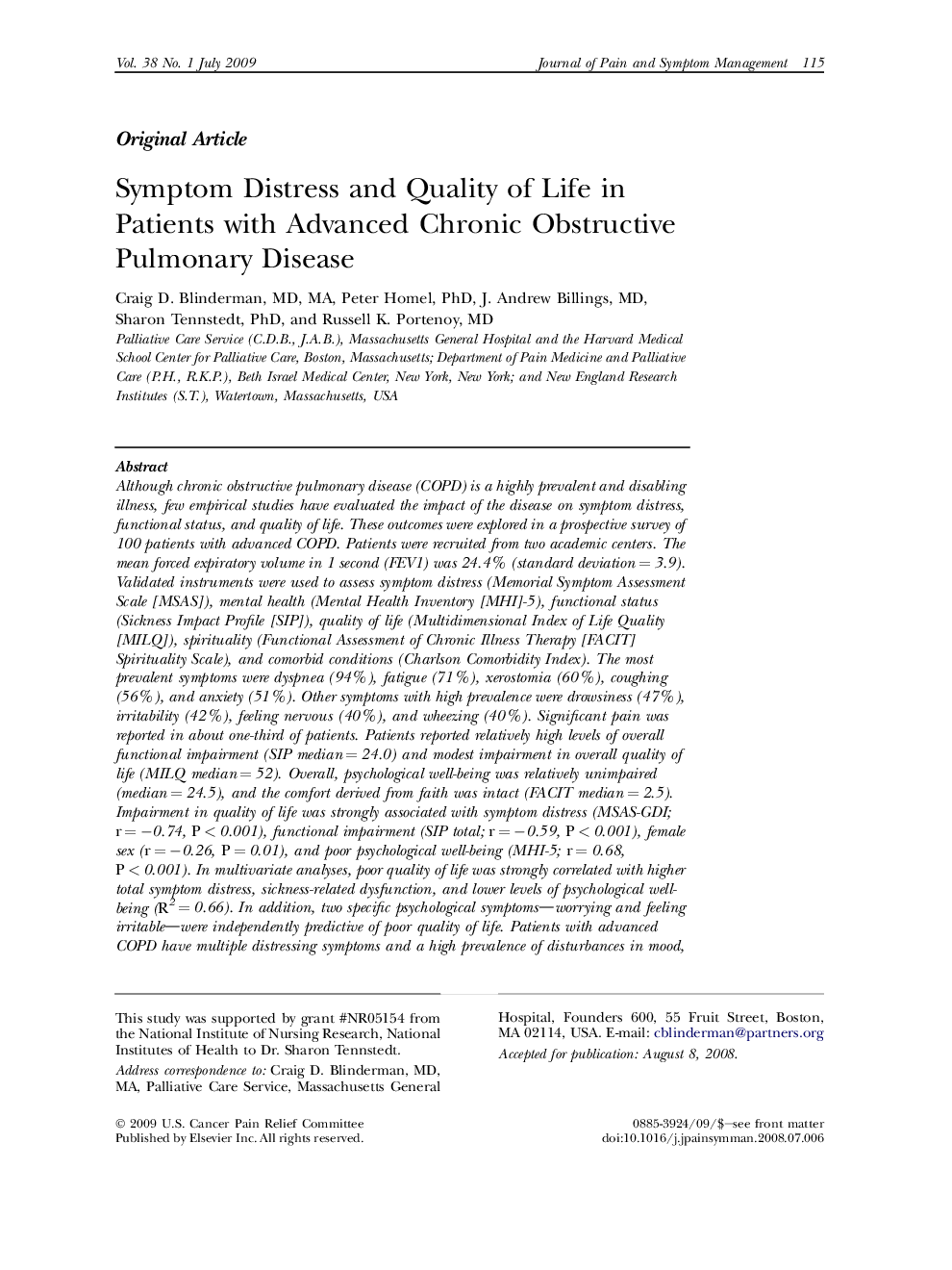| کد مقاله | کد نشریه | سال انتشار | مقاله انگلیسی | نسخه تمام متن |
|---|---|---|---|---|
| 2730637 | 1147261 | 2009 | 9 صفحه PDF | دانلود رایگان |

Although chronic obstructive pulmonary disease (COPD) is a highly prevalent and disabling illness, few empirical studies have evaluated the impact of the disease on symptom distress, functional status, and quality of life. These outcomes were explored in a prospective survey of 100 patients with advanced COPD. Patients were recruited from two academic centers. The mean forced expiratory volume in 1 second (FEV1) was 24.4% (standard deviation = 3.9). Validated instruments were used to assess symptom distress (Memorial Symptom Assessment Scale [MSAS]), mental health (Mental Health Inventory [MHI]-5), functional status (Sickness Impact Profile [SIP]), quality of life (Multidimensional Index of Life Quality [MILQ]), spirituality (Functional Assessment of Chronic Illness Therapy [FACIT] Spirituality Scale), and comorbid conditions (Charlson Comorbidity Index). The most prevalent symptoms were dyspnea (94%), fatigue (71%), xerostomia (60%), coughing (56%), and anxiety (51%). Other symptoms with high prevalence were drowsiness (47%), irritability (42%), feeling nervous (40%), and wheezing (40%). Significant pain was reported in about one-third of patients. Patients reported relatively high levels of overall functional impairment (SIP median = 24.0) and modest impairment in overall quality of life (MILQ median = 52). Overall, psychological well-being was relatively unimpaired (median = 24.5), and the comfort derived from faith was intact (FACIT median = 2.5). Impairment in quality of life was strongly associated with symptom distress (MSAS-GDI; r = −0.74, P < 0.001), functional impairment (SIP total; r = −0.59, P < 0.001), female sex (r = −0.26, P = 0.01), and poor psychological well-being (MHI-5; r = 0.68, P < 0.001). In multivariate analyses, poor quality of life was strongly correlated with higher total symptom distress, sickness-related dysfunction, and lower levels of psychological well-being (R2 = 0.66). In addition, two specific psychological symptoms—worrying and feeling irritable—were independently predictive of poor quality of life. Patients with advanced COPD have multiple distressing symptoms and a high prevalence of disturbances in mood, functional status, and quality of life. A focus on ameliorating prevalent physical symptoms and psychological distress may lead to an improvement in the overall quality of life in this patient population.
Journal: Journal of Pain and Symptom Management - Volume 38, Issue 1, July 2009, Pages 115–123